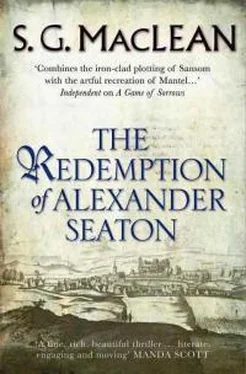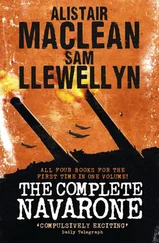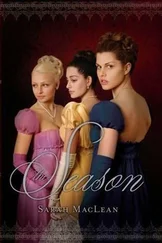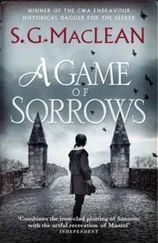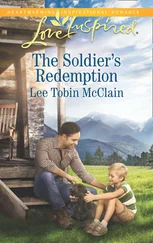Hamish MacLennan, a formidable preacher and fervent for the discipline of the kirk, was not at home. His wife insisted that Sarah lie down on the serving girl’s bed set into the kitchen wall. Despite her protests that she was not tired, it was scarcely ten minutes before the level rise and fall of her breathing told us she was asleep. In sleep she looked younger than her eighteen or nineteen years, almost childlike. Mistress Youngson laid another blanket over her and came across to where I sat on the window seat.
There was bread baking in the oven and its aroma filled the room. The warmth of the kitchen enveloped me so that I too felt I might sleep. In childhood I had often sought out the kitchen and the window seat. From there I would watch my mother at her work and listen to her stories of her Ulster homeland. There were many legends, of kings and princes and giants, and of the fairy folk, tales that would have had my mother up before the session, just for the telling of them, had it been known. To me the saddest story was not of princesses, or sea-folk or fairies, but of a young woman, a wealthy burgess’s daughter of Carrickfergus. The girl had fallen in love with a Scottish soldier returning to his homeland by way of Ireland from exile in France with his master. The young woman’s father had been opposed to any match between them; his daughter had not been brought up to be the wife of a mere soldier, a hammerman to trade. She had been educated in the ways of a lady to be the wife of a lawyer or civil servant or wealthy merchant. He forbade his daughter to see any more of the soldier. Three weeks later, the laird of Delgatie set sail in the night with his men up Belfast Lough and away towards Scotland, far away from his lovely daughter. But when the maidservant went to wake the girl in the morning she found the girl was gone, gone sailing to Scotland with the laird of Delgatie and his armourer, Andrew Seaton, my father.
I never tired of hearing the story as I sat silent in the window seat, watching as my mother kneaded bread and plucked birds and gutted fish; I watched as she rubbed the ointments Jaffray had prescribed from the apothecary into the sore and calloused hands that had been meant for sewing and drawing up household accounts and playing the lute. Or I would sit there working at my Latin and Greek until the light faded or my father found me and called me instead to the smithy, where he and his apprentice toiled before the roaring furnace over axes and hunting spears and swords of every description.
‘The girl is exhausted.’ It was Mistress Youngson’s voice that broke into my daydream. ‘Did she ride with you all the way from Banff, or did you meet with her on the road?’
‘I saw her on the ferry. She took a good deal of persuading before she would consent to get up on the horse. She had been of a mind to walk.’ A thought crossed my mind as Mistress Youngson’s question repeated itself in my head. ‘The child is not mine,’ I said. ‘I never spoke to her until this day. I–’
The old woman smiled. ‘Calm yourself, boy. I know whose child it is. The girl should never have been sent to work in that man’s house. My own sister, your master’s wife, told me what manner of man he was, and I warned her uncle and aunt not to put her there.’
‘And they did it anyway?’
She nodded.
I wondered what sort of home the girl was returning to, what kind of place in this world she was bringing her child into. ‘Will they take her in?’
‘Aye, they will. But she’ll have a hard time of it.’ She went wearily over to the hearth and stirred the pot from which the smell of mutton stew drifted over to me. I remembered my commission from her sister, forgotten in all the business of Sarah, and handed her the packages.
Mistress Youngson’s eyes lit up. She had a child’s delight in receiving a gift. There was hardly a mystery about the first package – four fresh herring, bought before it was light at the shore of Banff. The second package revealed a pot of honey, a gift from the hives in the laird of Banff’s great garden. There was a letter, which the old woman set up high on the mantel, for when she could take her time and read it on her own. Last was a soft, bulky parcel, wrapped in a muslin cloth and tied with hemp. A note was stitched to the cloth. Across the table I could read the words as the minister’s wife unfolded a knitted woollen shawl, the colour of oatmeal, with a tiny silken bow stitched at the corner: for Sarah Forbes’s bairn . How had I ever reached such a pass, to have lost the affection and respect of a woman of so stern demeanour and yet so replete with quiet kindness?
The minister’s wife insisted I take some of the mutton stew she had made for her husband’s dinner. ‘In any case, Mr MacLennan will have no notion of mutton stew when he catches sight of these herring.’ She ladled me out a huge bowl from her steaming pot and went to the kist for oatmeal to coat the fish in.
By the time I had finished my meal, Sarah Forbes still slept soundly. There was no reason I could find words or voice for to stay until she woke, yet I was reluctant to leave. Mistress Youngson had assured me that she herself would go with Sarah to her uncle’s house, once she was awake and had taken a good hot meal. She assured me also that she would make it known in very clear terms that she and her husband would keep an eye on how the girl was treated. Yet I could see that she still had fears for Sarah’s welfare and that of her child. I walked out of the manse door and then I turned back to Mistress Youngson with my hand at my pouch. I pressed the coins into her hand. Five pounds Scots – the price of some books I had been going to buy for myself in Aberdeen. ‘Give it to them. Tell them it is from friends in Banff. It is for her food, and she must not be made to work beyond noon. Tell them there will be more when the child comes, if her friends are satisfied that she is not mistreated.’
She closed her hand over the coins and I could see tears in her eyes. ‘You are a good man, for all … for all else that might have happened.’ Further explanation was unnecessary. I thanked her for her kindness and rode away from King Edward.
The road became busier over the last few miles to Turriff with country people returning from the morning market in the town. Some of them might have known me, but I kept my hat pulled down low and, avoiding their eyes, kept my gaze fixed directly ahead of me. I did not turn to the left where the road branched off for Delgatie. I could count on the fingers of one hand the number of times I had reached this crossing and continued directly ahead rather than turning towards that great stronghold. I can have been little more than five years old when I first rode up with my father. Every step of the horse took me further into this strange, unimagined world. And then I had seen the castle. Only an ogre, I thought, a giant such as held sway in my mother’s stories, could live in such a place as that. Try as he might my father could not make me believe that the lord of that castle was the same jovial man who would arrive at the foundry with a great retinue of men, ordering arms for fighting and weapons for the hunt. He would joke with my father about my long slim fingers and my pale boy’s hands, and ask me to show him where were my hammerman’s muscles. I remembered my mother coming out on one such occasion and fixing his lordship with what I knew to be her most dangerous look and saying to him, ‘This child will be no hammerman,’ before taking my arm from his hand and bringing me back into her kitchen. My father was so ashamed it was days before I heard him address a word to her. But the laird of Delgatie never made sport of me again.
But that was over twenty years ago, that first of many visits, that first time I had met Archie, the laird’s boisterous bear cub of a son, who even at five years old transfixed and overwhelmed me with his intoxicating spirit. And then too I had met Katharine, the serious three-year-old Katharine, who even then watched her brother with a quiet wariness far beyond her years. But now Archie was dead, and Katharine was here no longer, gone far, far away from her home and her family because of me, and their father would have thrown me from the castle’s ramparts rather than welcome me within its walls once more.
Читать дальше
